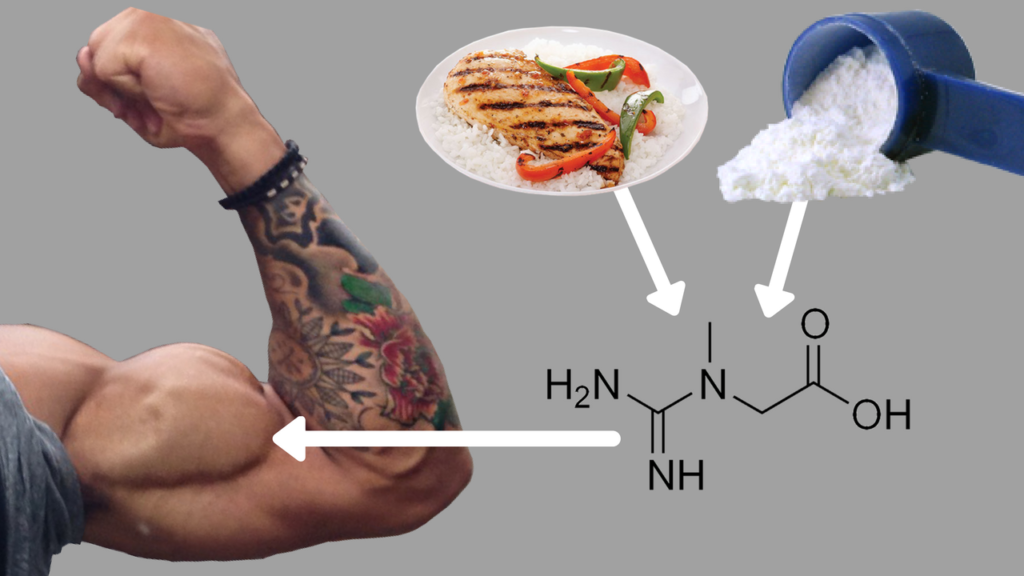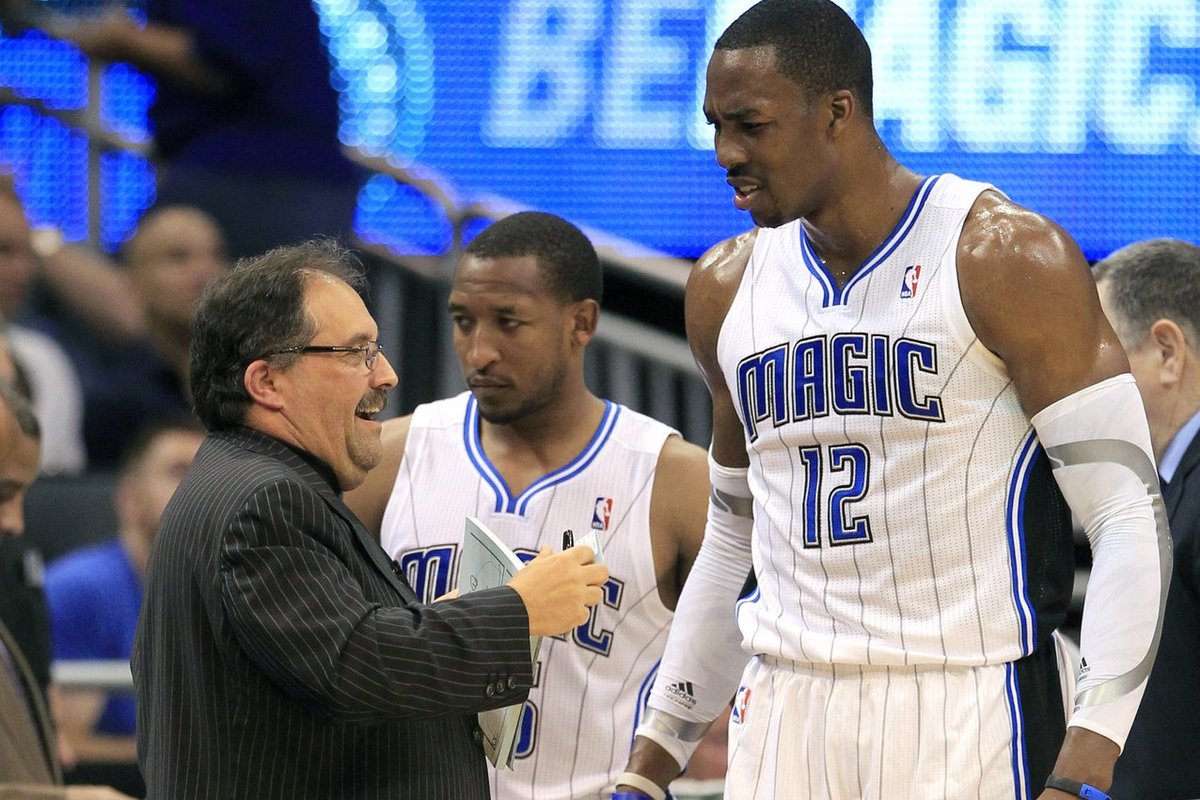Creatine For Muscle Growth: Does It Work?

Table of Contents
The pursuit of bigger, stronger muscles is a common goal for many involved in strength training and bodybuilding. Countless supplements promise to accelerate muscle growth, but creatine stands out as one of the most researched and widely used. But does creatine for muscle growth actually deliver on its promises? The answer, supported by extensive scientific evidence, is a resounding yes, but with important caveats regarding usage and potential side effects. This article will delve into the science behind creatine's effectiveness, explore different types, optimal dosage, potential side effects, and how to maximize its benefits through diet and training.
How Creatine Works for Muscle Growth
Creatine's primary mechanism for boosting muscle growth lies in its ability to enhance adenosine triphosphate (ATP) production. ATP is the primary energy currency of cells, crucial for muscle contractions during intense exercise. Creatine, specifically in its phosphocreatine form, acts as a reservoir, rapidly replenishing ATP levels during high-intensity activities like weightlifting. This increased energy availability translates to:
- Increased strength and power output: More ATP means you can lift heavier weights and perform more repetitions.
- Enhanced muscle hypertrophy (growth): Increased strength and power, coupled with the anabolic effects of exercise, stimulate muscle protein synthesis, leading to muscle growth.
- Improved high-intensity exercise performance: You can push harder and longer during your workouts, leading to greater overall training volume.
- Faster recovery between sets and workouts: Quicker ATP replenishment means less fatigue and faster recovery, allowing for more frequent and intense training sessions.
The process is essentially an anabolic one, boosting muscle building and repair. The increased muscle energy from creatine allows for more intense and prolonged training sessions, ultimately driving muscle hypertrophy.
Types of Creatine and Which to Choose
Several forms of creatine exist, including creatine monohydrate, creatine hydrochloride (HCL), and creatine ethyl ester. However, creatine monohydrate reigns supreme due to its extensive research backing and proven effectiveness. While other forms claim superior absorption or benefits, these claims often lack robust scientific support.
- Creatine Monohydrate: This is the gold standard, highly effective, readily available, and cost-effective. A typical daily dosage is 3-5 grams.
- Other forms (Creatine HCL, Creatine Ethyl Ester): These often come with higher price tags but lack the substantial research to support their superiority over creatine monohydrate. Their efficacy remains questionable compared to the proven benefits of monohydrate.
- Recommendations: For most individuals seeking to improve muscle growth and strength, creatine monohydrate is the clear choice.
Optimal Creatine Dosage and Cycling
The typical recommended daily dosage of creatine monohydrate is 3-5 grams. Many individuals utilize a loading phase initially, consuming 20 grams daily for 5-7 days to rapidly saturate muscle creatine stores. Following this, a maintenance phase of 3-5 grams daily is sufficient to maintain optimal levels.
- Loading phase: This accelerated saturation allows you to experience the benefits more quickly.
- Maintenance phase: This ensures consistent levels of creatine in your muscles for sustained performance and growth benefits.
- Importance of proper hydration: Creatine draws water into muscle cells, so adequate hydration is crucial to prevent dehydration and maximize its effects. Drinking plenty of water throughout the day is essential when taking creatine. Cycling on and off creatine isn't typically necessary and consistent use is generally more beneficial.
Potential Side Effects of Creatine
Concerns about creatine's safety are often raised, with common anxieties revolving around water retention, weight gain, and kidney issues. While these side effects can occur, they are usually mild and temporary when creatine is used appropriately.
- Water retention: Creatine increases water retention in muscles, leading to a temporary increase in body weight. This is primarily water weight and not fat gain.
- Weight gain: The increase in weight is mainly due to water retention and muscle growth, not fat accumulation.
- Kidney function: Extensive research demonstrates no negative impact on kidney function in healthy individuals when creatine is used as directed. Individuals with pre-existing kidney conditions should consult their doctor before using creatine.
Creatine and Diet: Maximizing Results
To maximize the benefits of creatine for muscle growth, it's crucial to combine it with a proper diet and training program.
- Importance of sufficient protein intake: Protein is the building block of muscle, so adequate protein intake (1.6-2.2 grams per kilogram of body weight) is essential for muscle protein synthesis.
- The role of carbohydrates: Carbohydrates provide the energy for your workouts and help replenish glycogen stores, crucial for muscle recovery and growth.
- The importance of a well-structured resistance training program: A comprehensive resistance training program that targets all major muscle groups is essential for stimulating muscle growth.
Conclusion
Creatine supplementation is a safe and effective strategy for enhancing muscle growth and strength when used responsibly. While potential side effects like water retention exist, they are generally mild and temporary. The overwhelming scientific evidence supports its effectiveness when combined with a proper diet and training program. To reap the benefits of creatine, remember to maintain consistent usage, prioritize proper hydration, and focus on a holistic approach that integrates nutrition and exercise. Incorporate creatine into your muscle-building routine today to improve your strength gains and overall performance. Consult with a healthcare professional if you have pre-existing health conditions before starting any new supplement regimen. For high-quality creatine supplements, [link to reputable retailer]. Remember to choose a reputable brand for the best creatine supplement for your needs.

Featured Posts
-
 Analyst Mike Breens Banter With Mikal Bridges The Latest Nba Commentary Snippet
May 17, 2025
Analyst Mike Breens Banter With Mikal Bridges The Latest Nba Commentary Snippet
May 17, 2025 -
 Knicks Brunson Addresses Thibodeaus Uncertain Future
May 17, 2025
Knicks Brunson Addresses Thibodeaus Uncertain Future
May 17, 2025 -
 Mariners Vs Athletics Injury Report March 27 30
May 17, 2025
Mariners Vs Athletics Injury Report March 27 30
May 17, 2025 -
 The Landry Shamet Question A Dilemma For The New York Knicks
May 17, 2025
The Landry Shamet Question A Dilemma For The New York Knicks
May 17, 2025 -
 Wnba Opening Weekend Get Your Angel Reese Jersey Now
May 17, 2025
Wnba Opening Weekend Get Your Angel Reese Jersey Now
May 17, 2025
Latest Posts
-
 Josh Hart The Knicks Draymond Green A Role Comparison
May 17, 2025
Josh Hart The Knicks Draymond Green A Role Comparison
May 17, 2025 -
 Knicks Vs Celtics Feb 23 Josh Hart Injury Report And Game Time Decision
May 17, 2025
Knicks Vs Celtics Feb 23 Josh Hart Injury Report And Game Time Decision
May 17, 2025 -
 Josh Harts Status Will He Play Against The Celtics On February 23rd
May 17, 2025
Josh Harts Status Will He Play Against The Celtics On February 23rd
May 17, 2025 -
 Reta Nba Situacija Teisejas Pripazino Klaida Pakeitusia Pistons Ir Knicks Rungtyniu Rezultata
May 17, 2025
Reta Nba Situacija Teisejas Pripazino Klaida Pakeitusia Pistons Ir Knicks Rungtyniu Rezultata
May 17, 2025 -
 Police Activity Recent Blotter Reports From Austintown And Boardman
May 17, 2025
Police Activity Recent Blotter Reports From Austintown And Boardman
May 17, 2025
